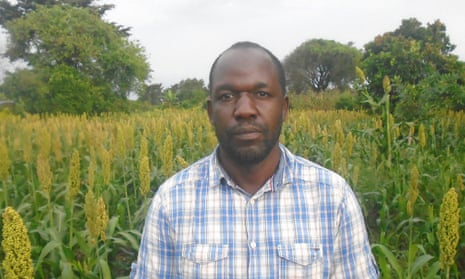Where I live, people are organised in clans. I belong to a clan where even 100 people, gathered together, can’t raise $100 (£75) to organise a funeral.
I come from a family that couldn’t afford to pay tuition of $10 a term when I was a student two decades ago. Many of my young relatives are out of school now, because their parents can’t afford a full academic term of $15.
Others are even worse off. There are families I have spoken with who say they are unable to earn $2 a month as a family.
There is no question that the UN global goals have stalled. And that’s bad news for people like me.
I happen to be one of those people who are fixated on the end of extreme poverty, and – if things were to go to plan – the prospect of seeing the global goals come true by 2030.
It is common for many small farmers in my region to own land that only measures 30ft by 100ft (or 0.07 acres). My own mum, who lives in a secluded village, only has half an acre. People’s incomes are defined not by real estate or industrial projects on their land, but by the crops they grow.
I can’t imagine what will happen when the young generation grows up and divides that land into even smaller fragments, with many of them probably having attained no education and with no jobs available.
It is why I feel strongly about how the global goals could change the course of life for people like us.
When the millennium development goals were adopted, I was a young school dropout, and didn’t know what was happening in the world. My only friends at the time were the boda boda (motorcycle taxis) riders for whom I repaired flat tyres, in a dilapidated garage, in one of the slums of Uganda’s capital.
The $0.10 that I earned for each flat tyre I repaired offered a liberation from the kind of poverty I had weathered since childhood.
But an even bigger, unexpected opportunity appeared: I trained and became a teacher in 2003, thanks to my government’s introduction of free teacher training.
By the time the global goals were adopted in 2015, a lot had happened in my life.
I had taught maths and science in the classroom for seven years, until I quit to become a farmer in 2011.
Although teaching itself didn’t lift me out of poverty – I struggled to get enough to eat throughout my teaching career – it prepared me to be an informed farmer. Today, I am the only rural poor farmer in my region, and certainly the only one in my clan, who is engaged with the global goals.
So, with the ever-spiralling grip of poverty, I keep thinking that maybe something will come out of the goals, to change us for the better.
I also feel the urge to do something for myself. I at least trained as a teacher, though this, too, left me poor. In contrast, many in my clan never went to school. So, if I can’t do anything to bring lasting change, things will only get worse once I am gone.
But, in all this, what breaks my heart is that the current stalling on progress of the global goals means we might end up in the same place in 2030, with nothing new, unless something changes now.
I am calling on the global community to get the goals back on track. It’s true that times have changed. But there is a lot we can do, especially if the rest of the world directly supports the extreme poor, to help them create lasting, sustainable change.
In my region, for instance, the inability of rural farmers to access markets for their produce is the reason they are poor. Farmers need infrastructure to create jobs, and support to get connected to agri companies so they can sell their produce. That way they can tread their own path from poverty.
